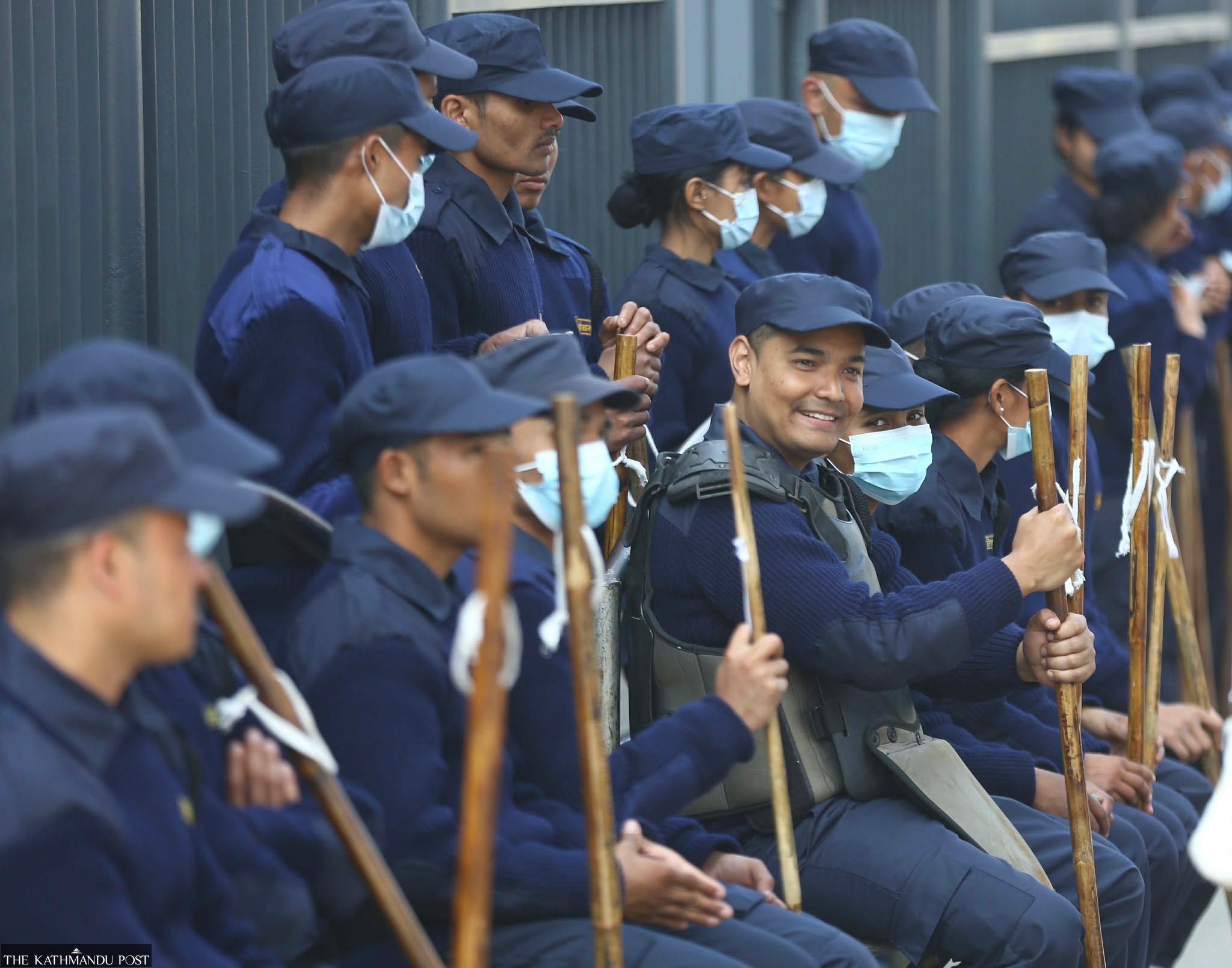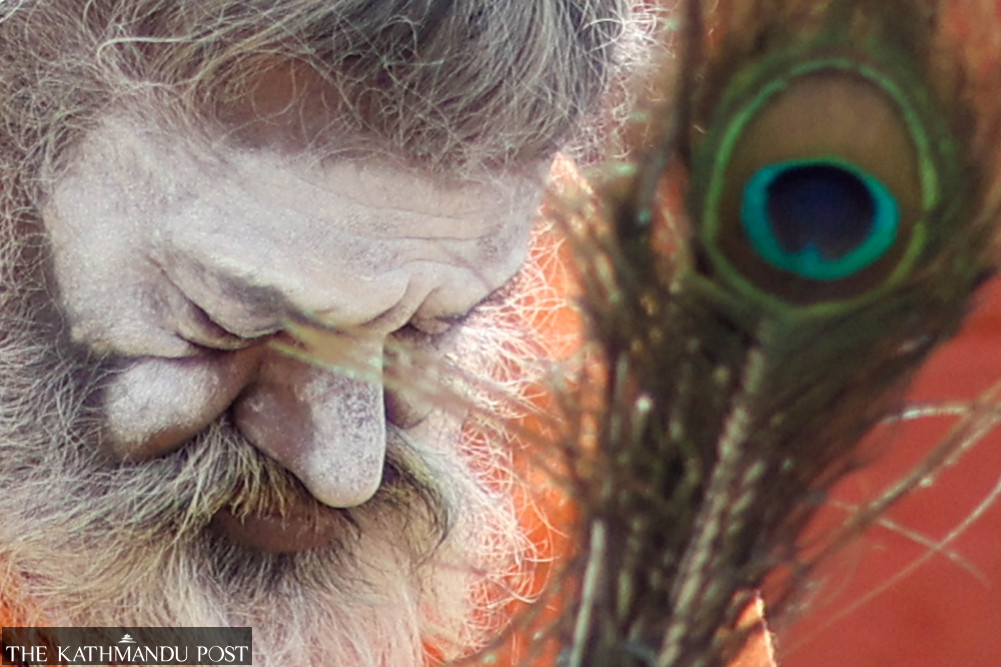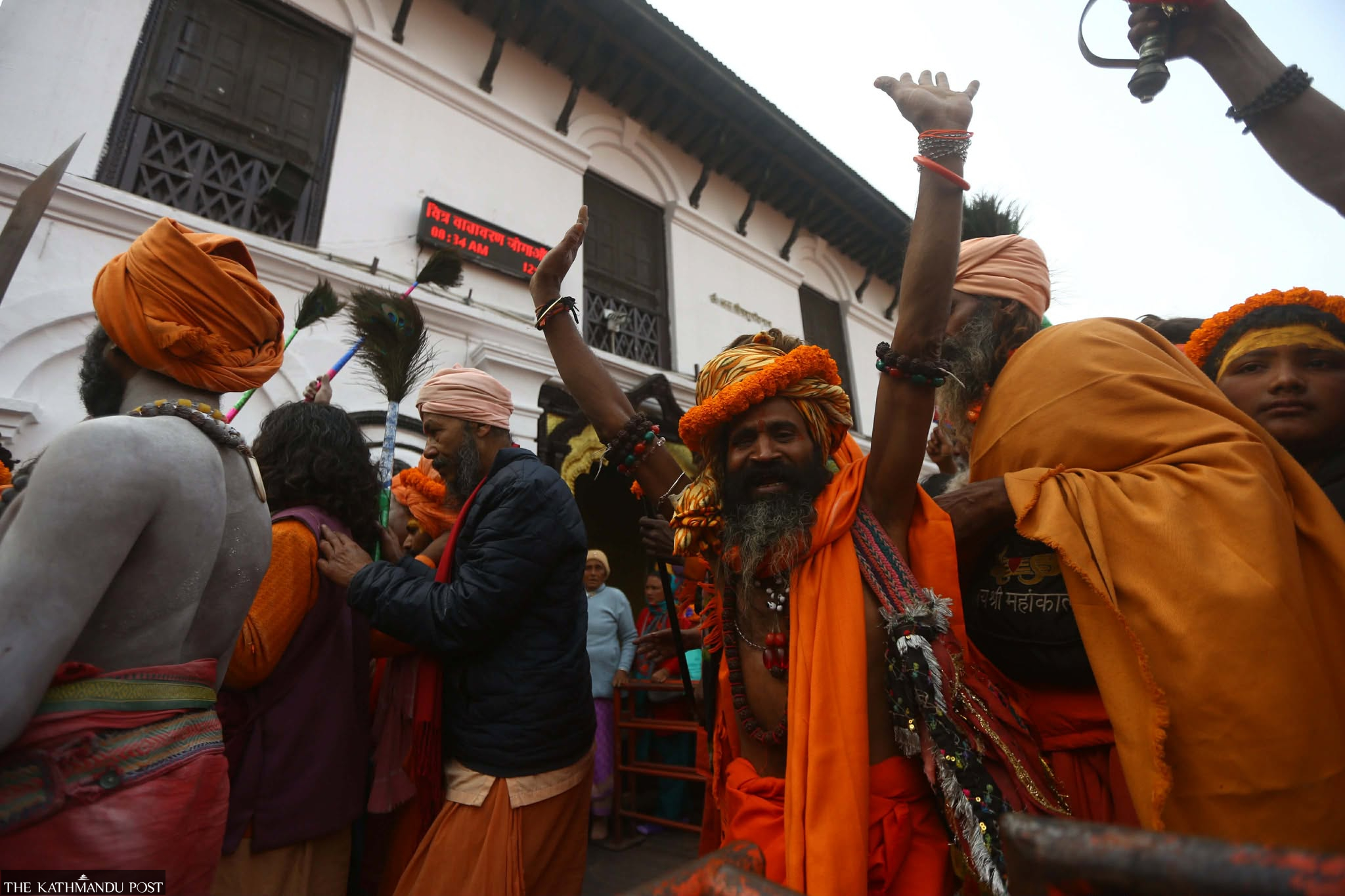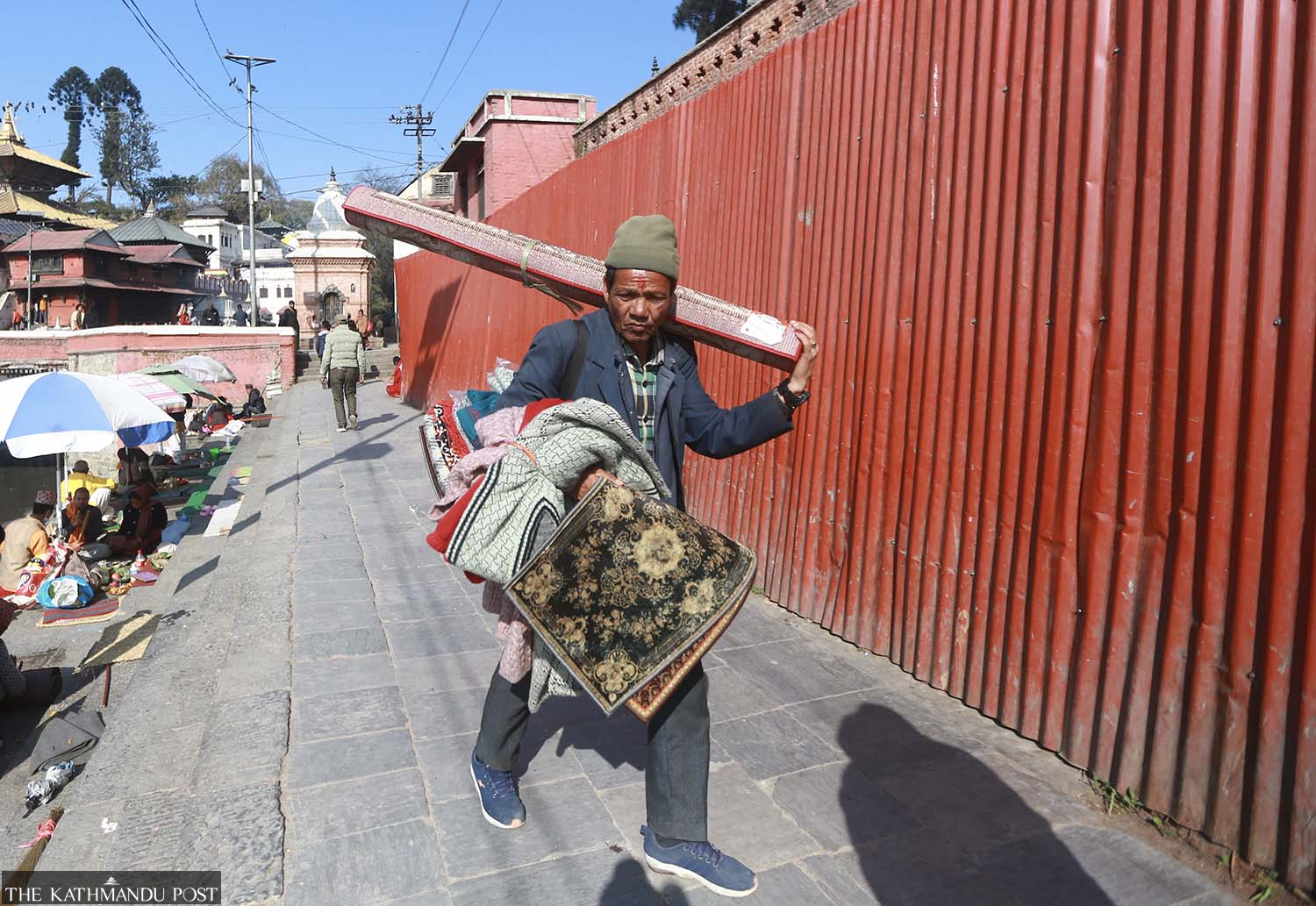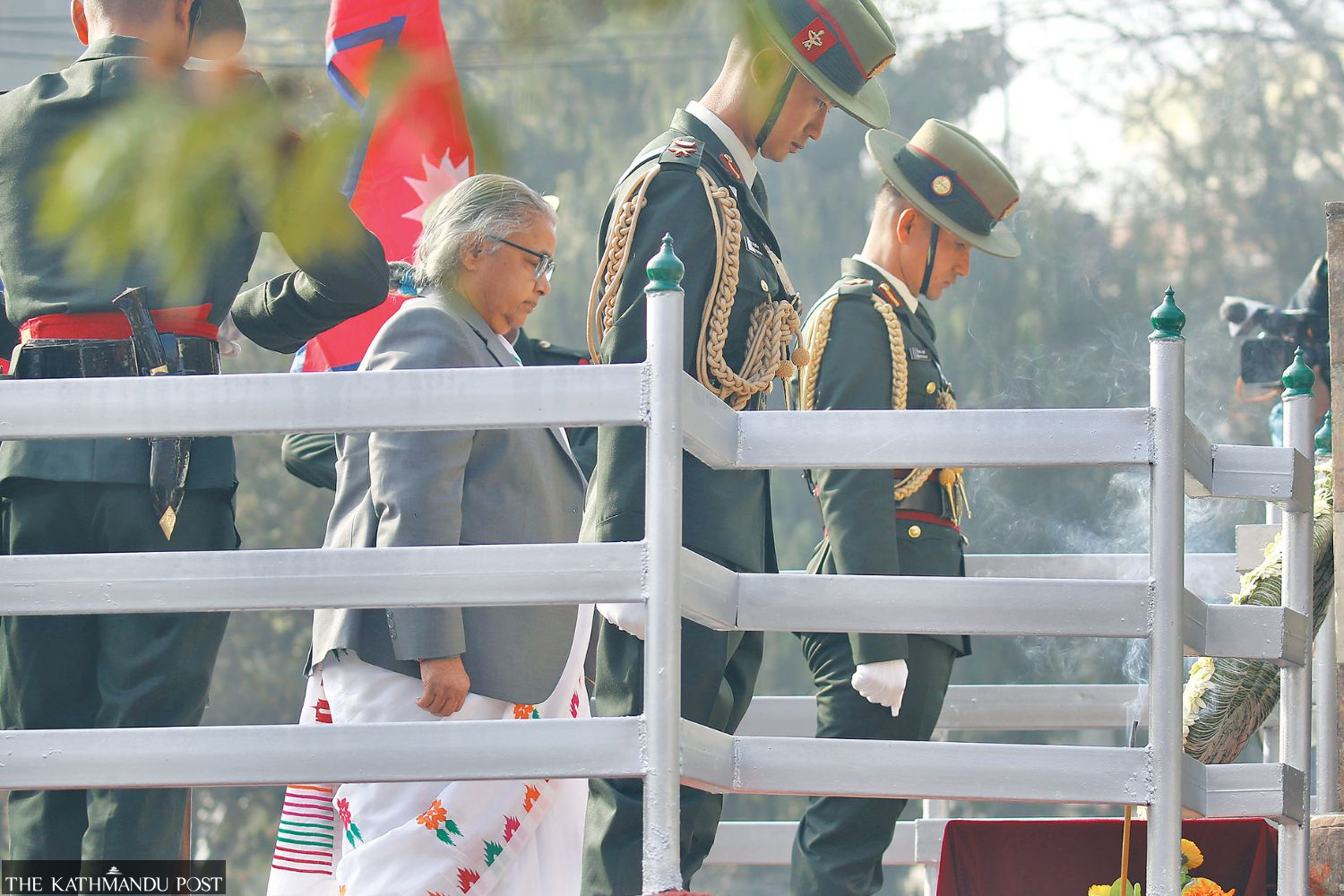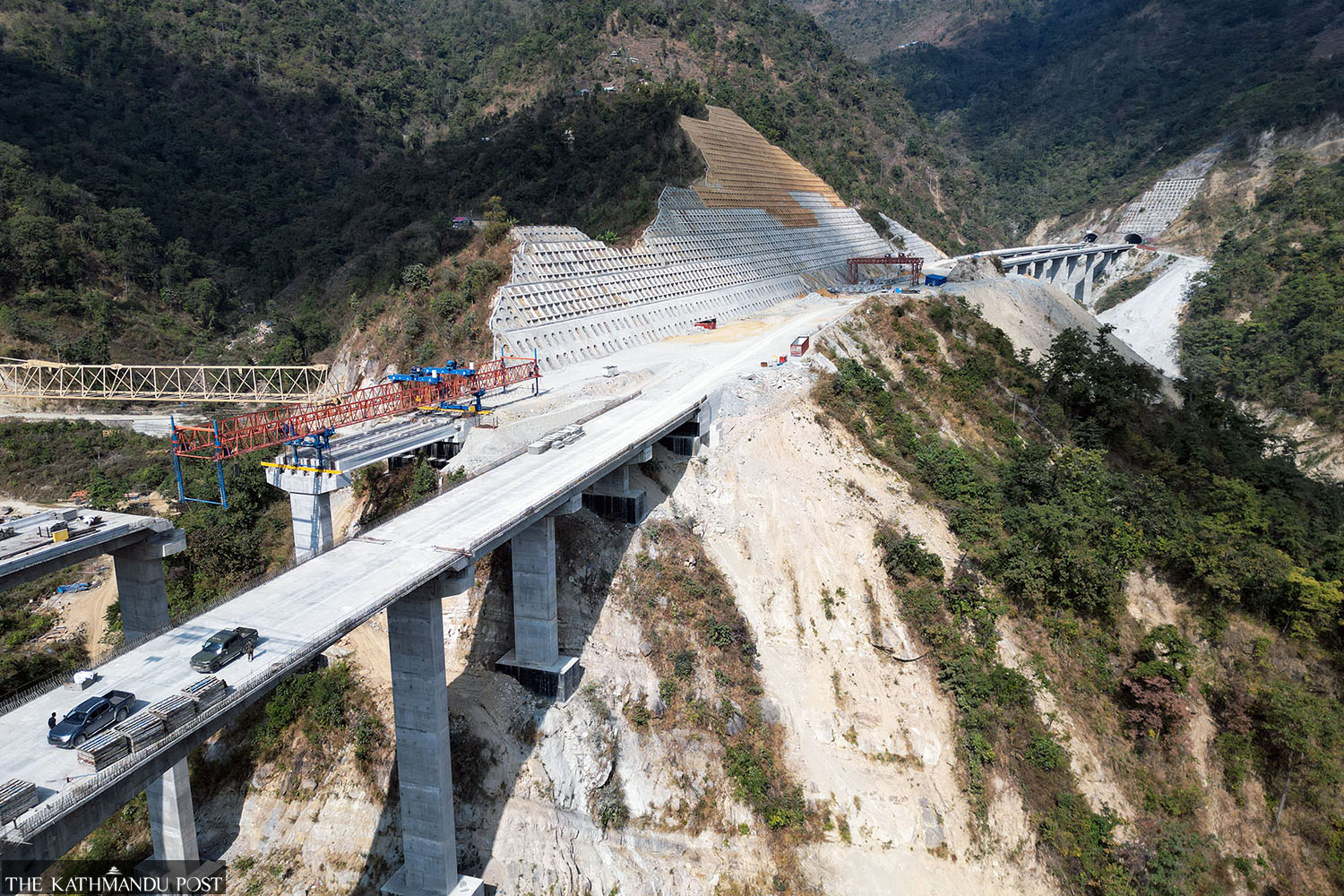Visual Stories
Khokana locals, police clash over ‘paddy transplantation protest’
Police say four personnel injured; locals say over a dozen were hurt in the incident.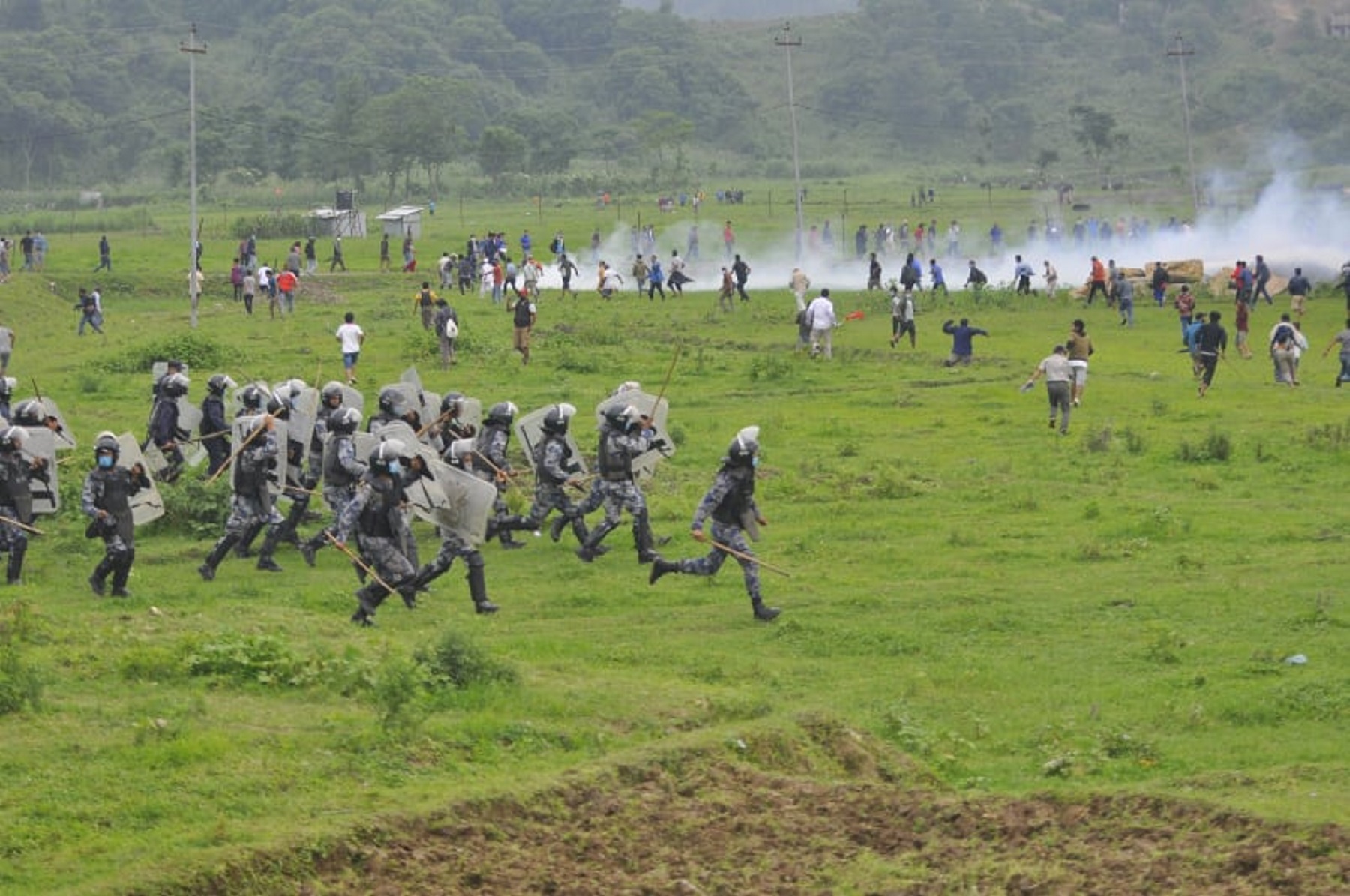
Shuvam Dhungana
A clash erupted between locals of Khokana and police when the authorities intervened in a “paddy transplantation protest” in Sudol, Khokana on the outskirts of Lalitpur, the gateway to the Kathmandu-Nijgadh expressway.
Local residents of Khokana say that half a dozen development projects planned in the area will uproot their traditional settlements. They have long expressed dissatisfaction over these projects as the government has neither provided them sufficient compensation nor sought their participation while designing the projects that threaten their cultural sites.
[Read: Khokana, Bungamati residents complain to visiting lawmakers]
“We were over 1,000 people. We were carrying our musical instruments and were going to transplant paddy, but police interfered aggressively,” said Karma Maharjan, a local resident.
The authorities’ plan to build development projects such as the Kathmandu-Nijgadh expressway, the Outer Ring Road, the Bagmati Corridor, a satellite city, and a high-tension power line in the area will mean relocation of the locals who have been living there for a long time.
[Visual Story: Shikali festival observed in Khokana]
Local residents said they are not against development, but uprooting a community from its settlement is unacceptable.
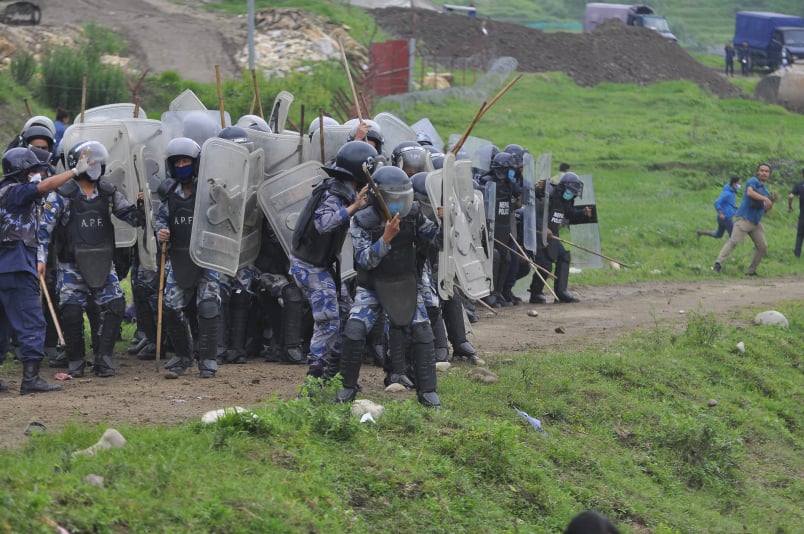
“We offered plots of land 5 km away from Khokana which can be used for all the projects. However, the government hasn’t responded,” said Krishna Bhakta Dangol, chairman of a local committee formed to negotiate with the government.
Police have been trying to stop locals from protesting on the land that has already been acquired by the government for the Kathmandu-Tarai expressway, which is being built by the Nepal Army. However, many locals have refused to accept the compensation for the land arguing that the project would displace them from their settlement.
[Read: Expressway to stay on course despite Khokana protests]
On Saturday, police were deployed in large numbers since early hours, as locals had announced their paddy plantation plan in advance.
As people started to gather, police lobbed tear gas shells and charged batons.
Dangol said over a dozen protesters had sustained minor injuries, while a protester was seriously injured and was admitted to the hospital for treatment.
Police said they were forced to fire tear gas to disperse the crowd.
According to Senior Superintendent Tek Prasad Rai, chief of Lalitpur Metropolitan Police Range, four personnel were injured during the clash.
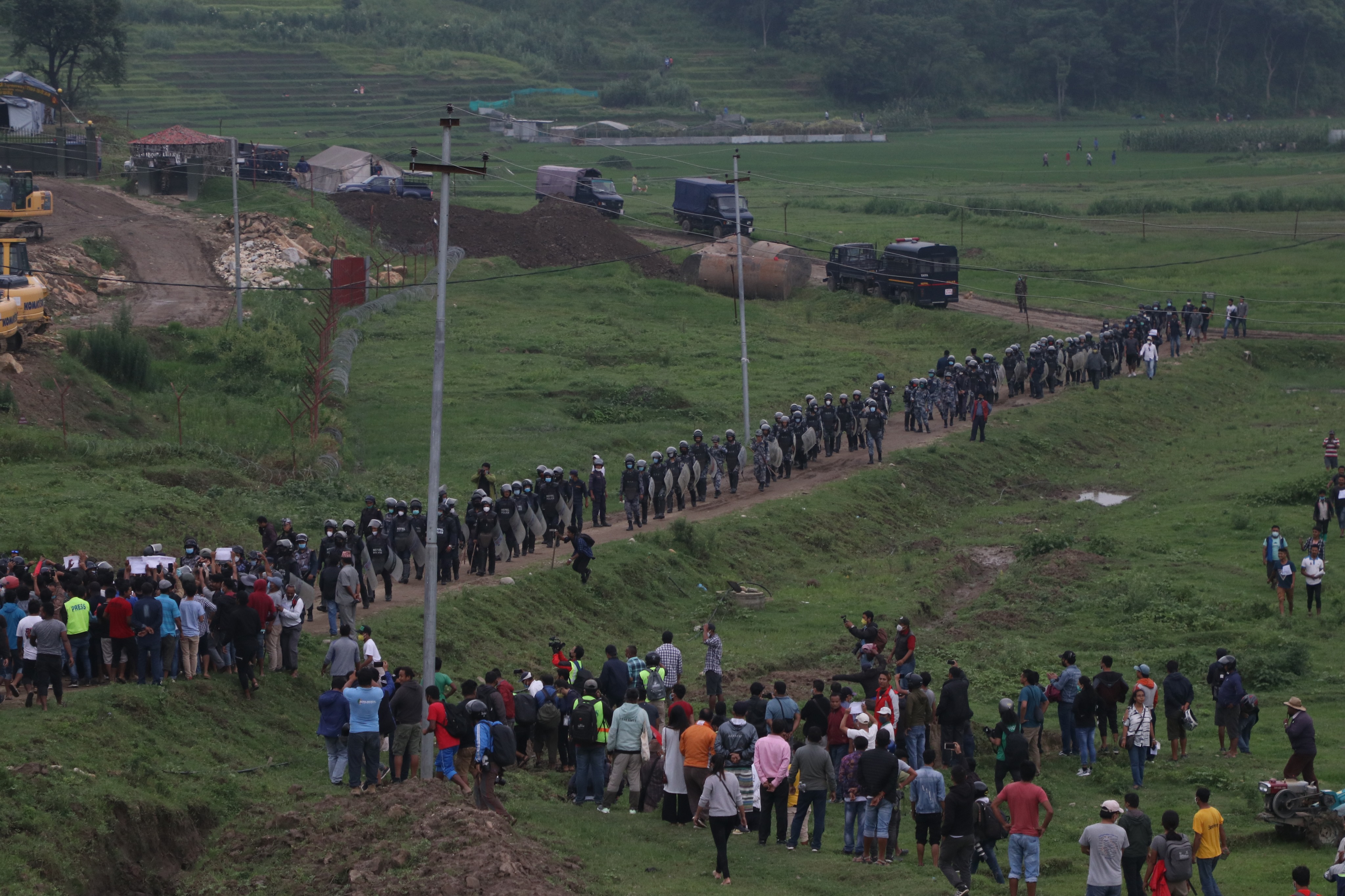
The Army, which is building the expressway, says it hopes to address all the outstanding issues with the locals in phases.
Brigadier General Bigyan Dev Pandey, who was until Friday the spokesperson for the Nepal Army, said army officials recently held a meeting with Lalitpur chief district officer and mayor as well as concerned ward officials and other authorities to address the problem.
“We decided that we will address the problem in phases,” said Pandey. “The locals should first report their problems to the ward office, then the ward will send a list of problems to the chief district officer, who will then forward it to the project officials.”
According to Pandey, one of the main issues is with the compensation that the government provided, as many are demanding more now.
Earlier this week on the day of the National Paddy Plantation Day also farmers had come out to their fields with their tools and equipment to transplant paddy in a show of defiance, but police had intervened and forced them to abandon the protest.
Khokana locals have protested in the past as well, oftentimes finding themselves on the receiving end authorities used force.
Pandey said that as the fasttrack project was meant for the general good of the public, it will go forward only after addressing the local people’s concerns.
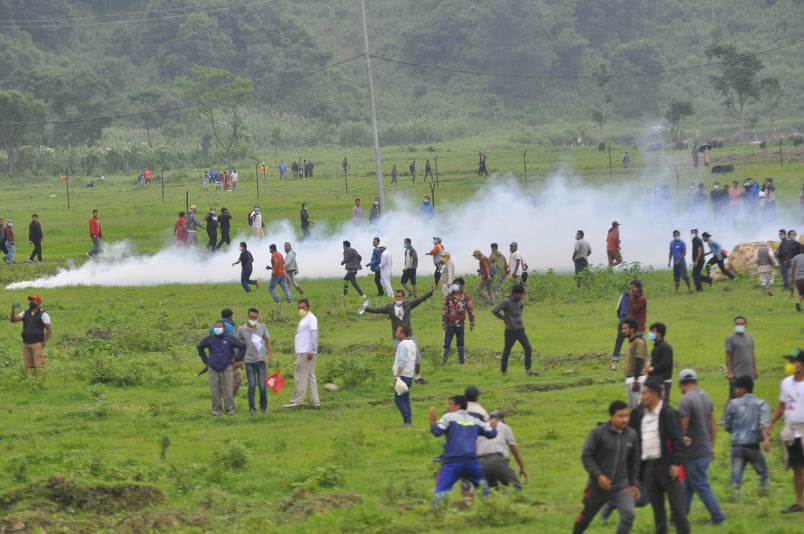
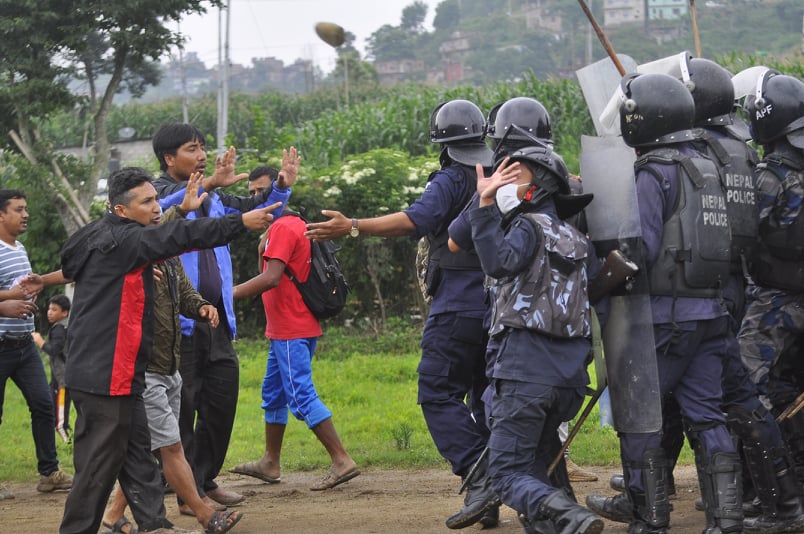
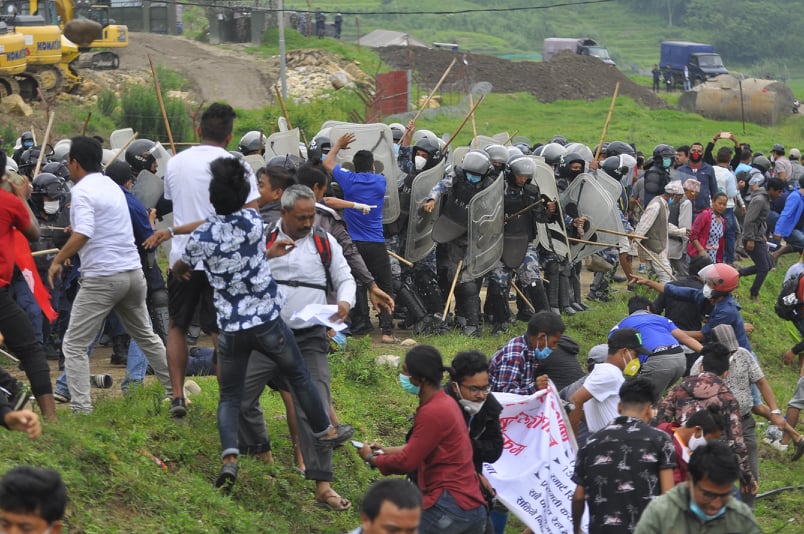
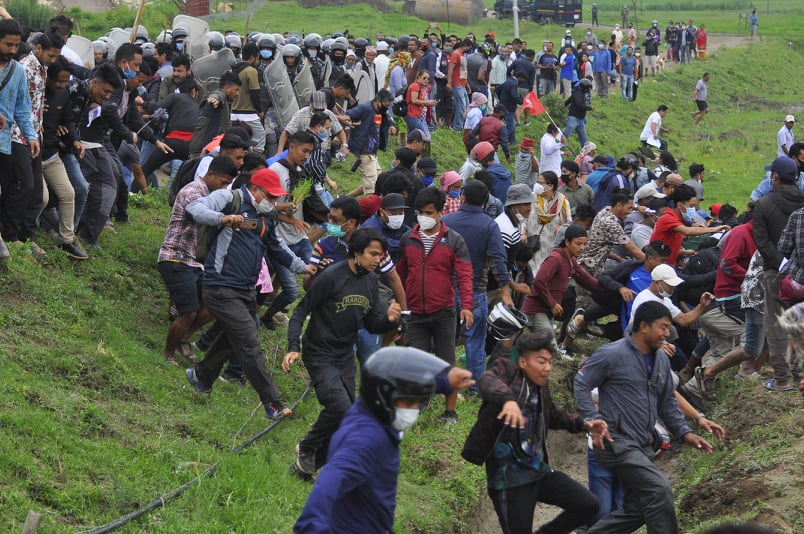
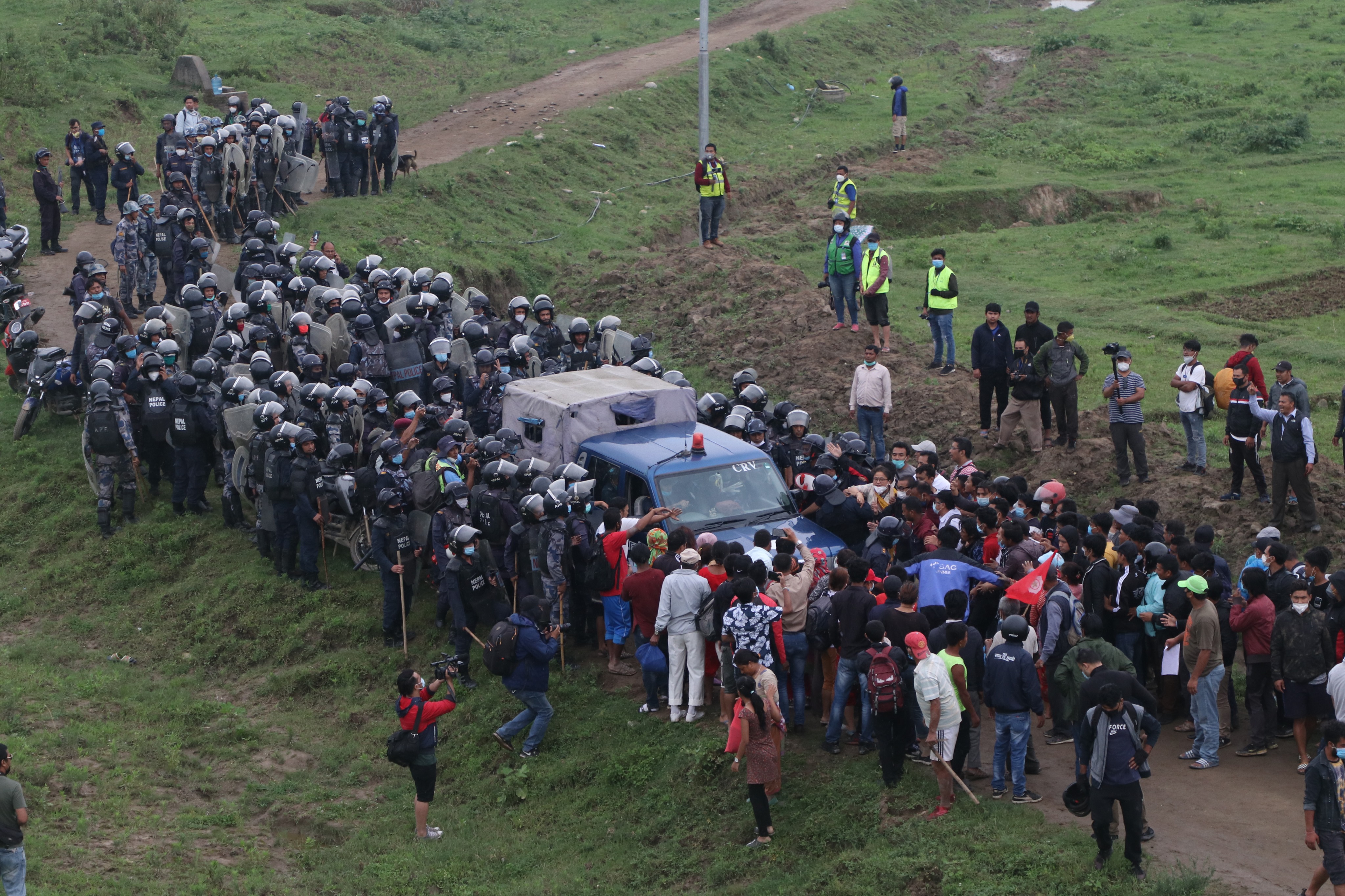
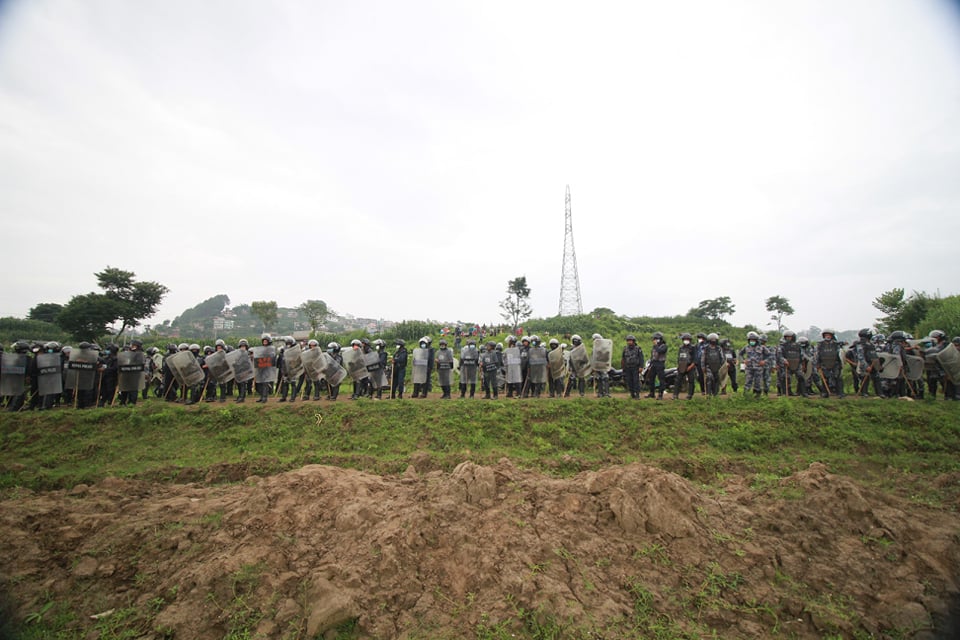
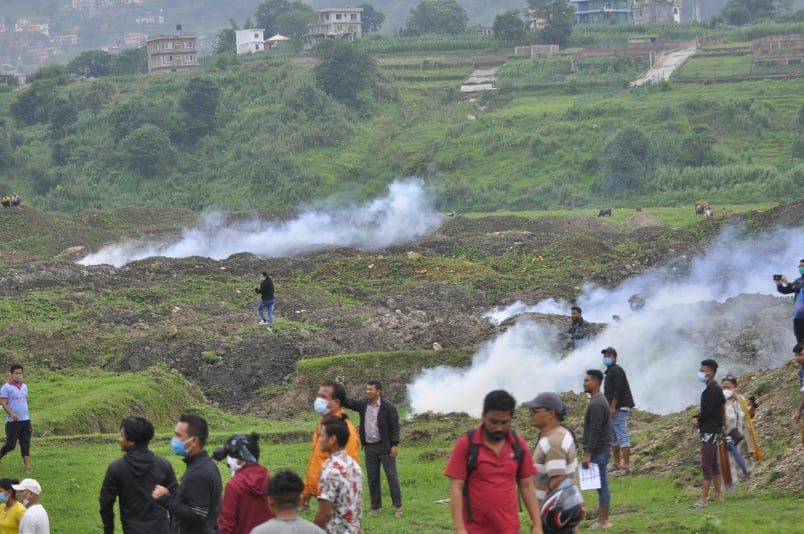
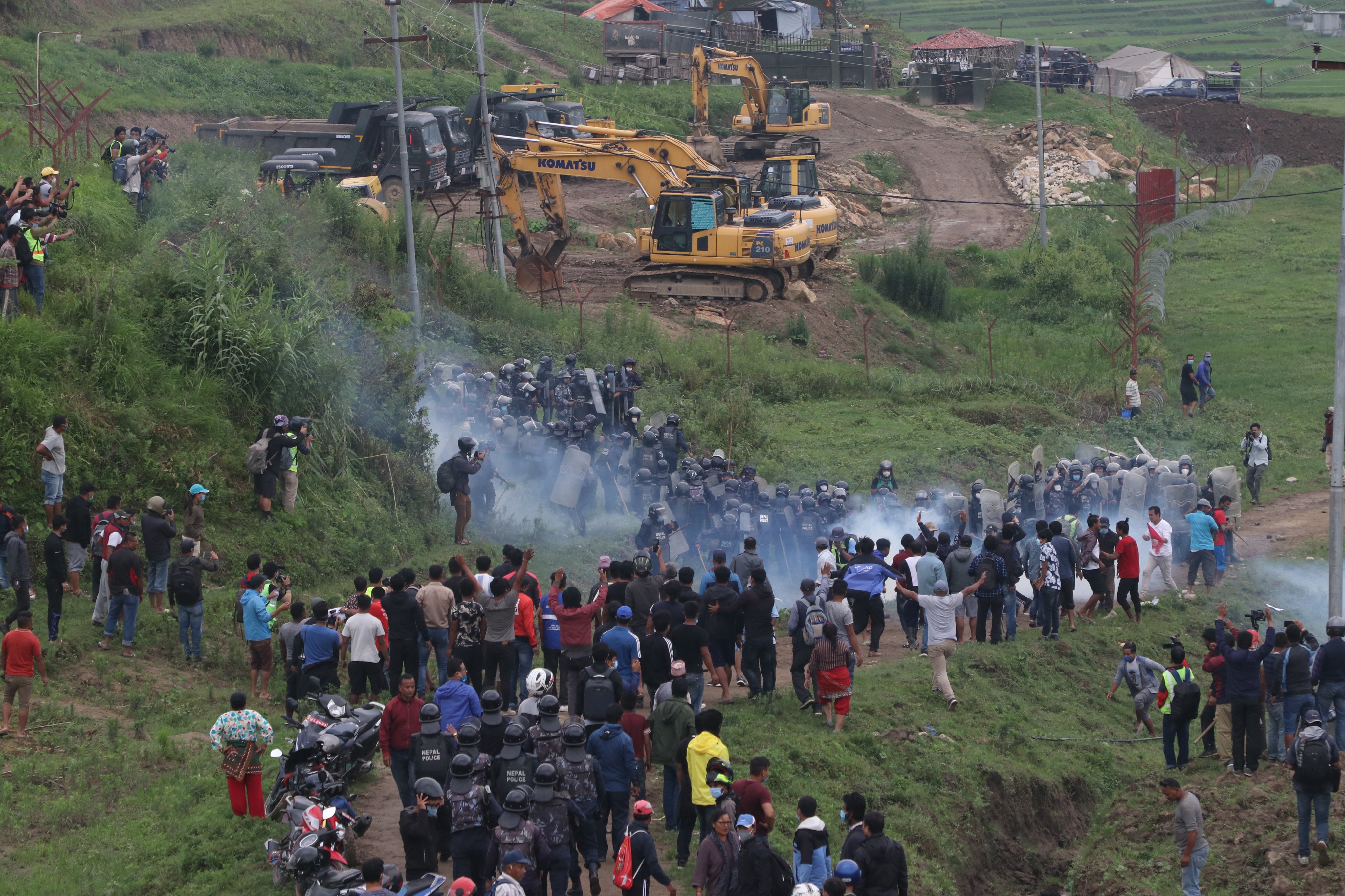
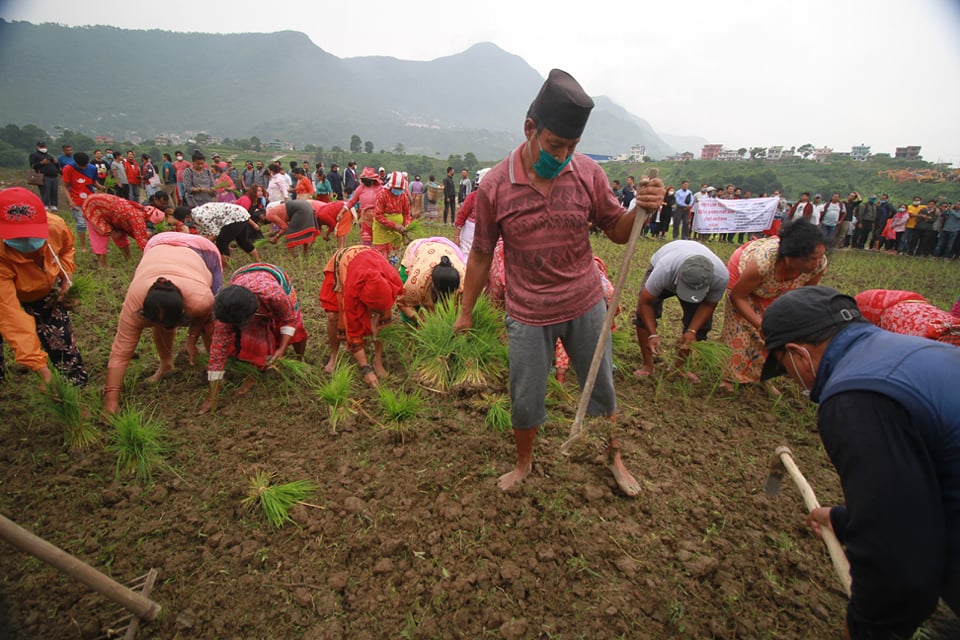
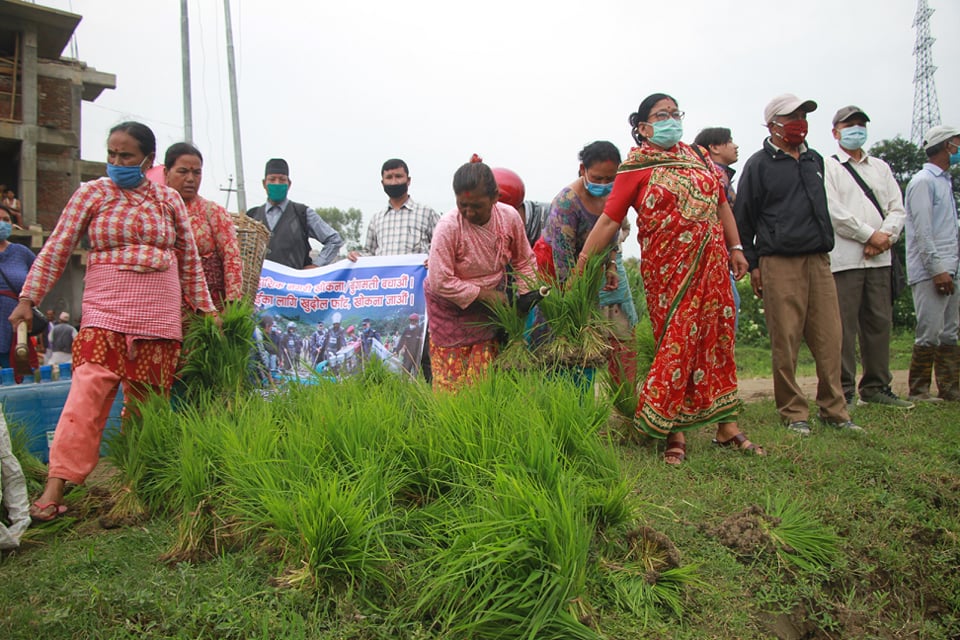
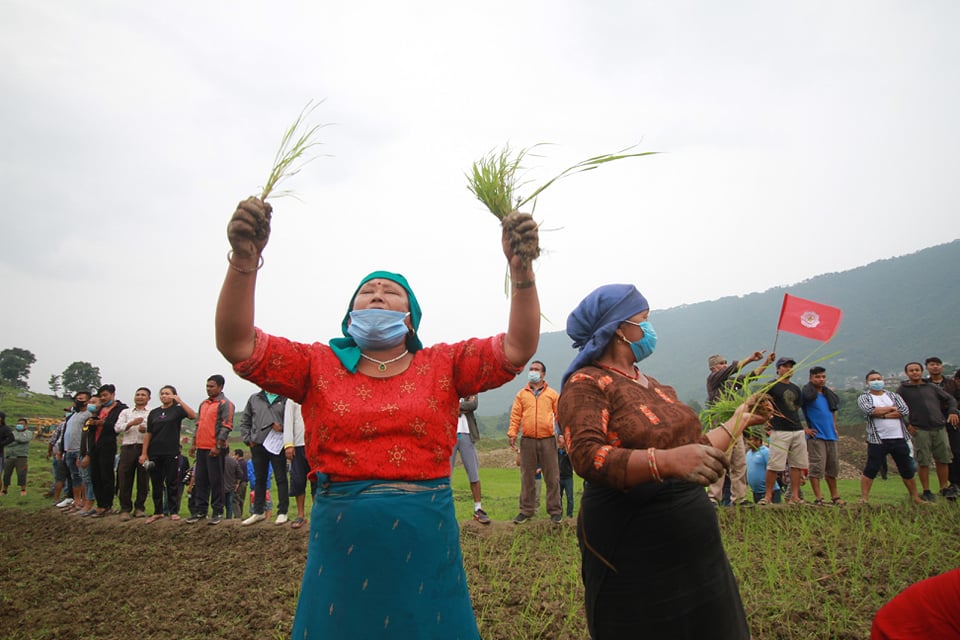
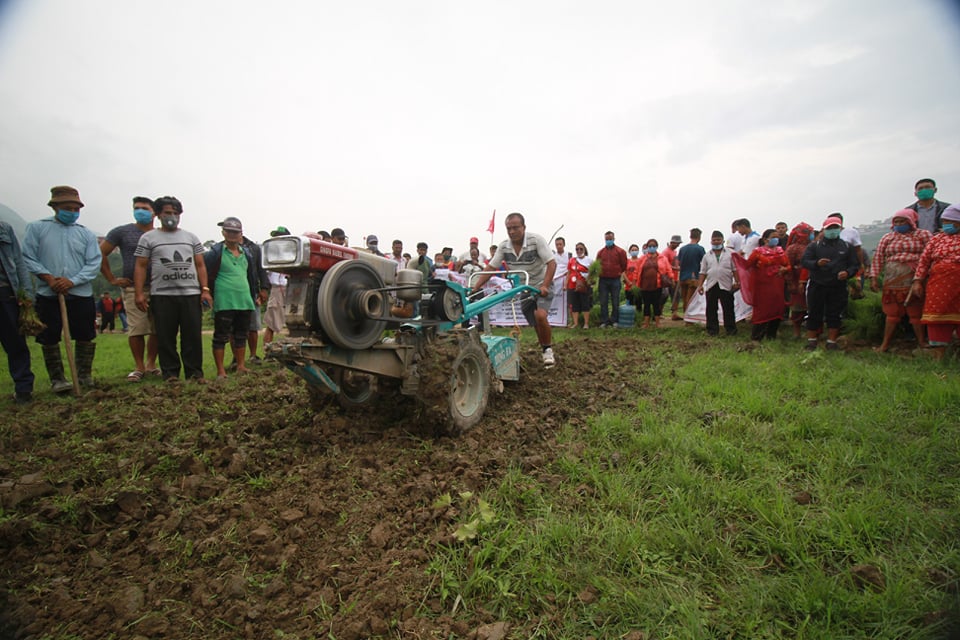
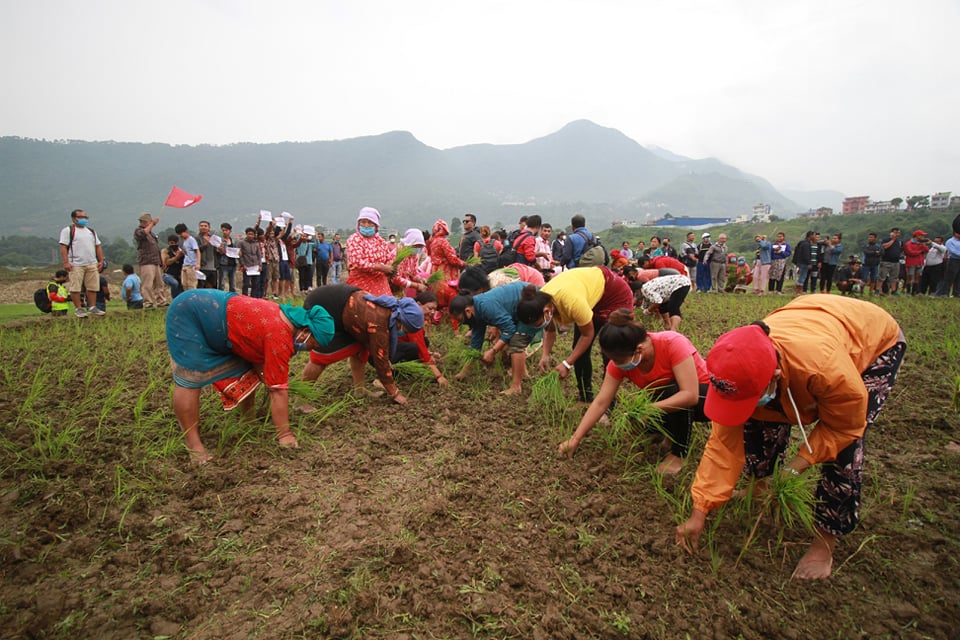
The story has been updated.




 12.12°C Kathmandu
12.12°C Kathmandu
